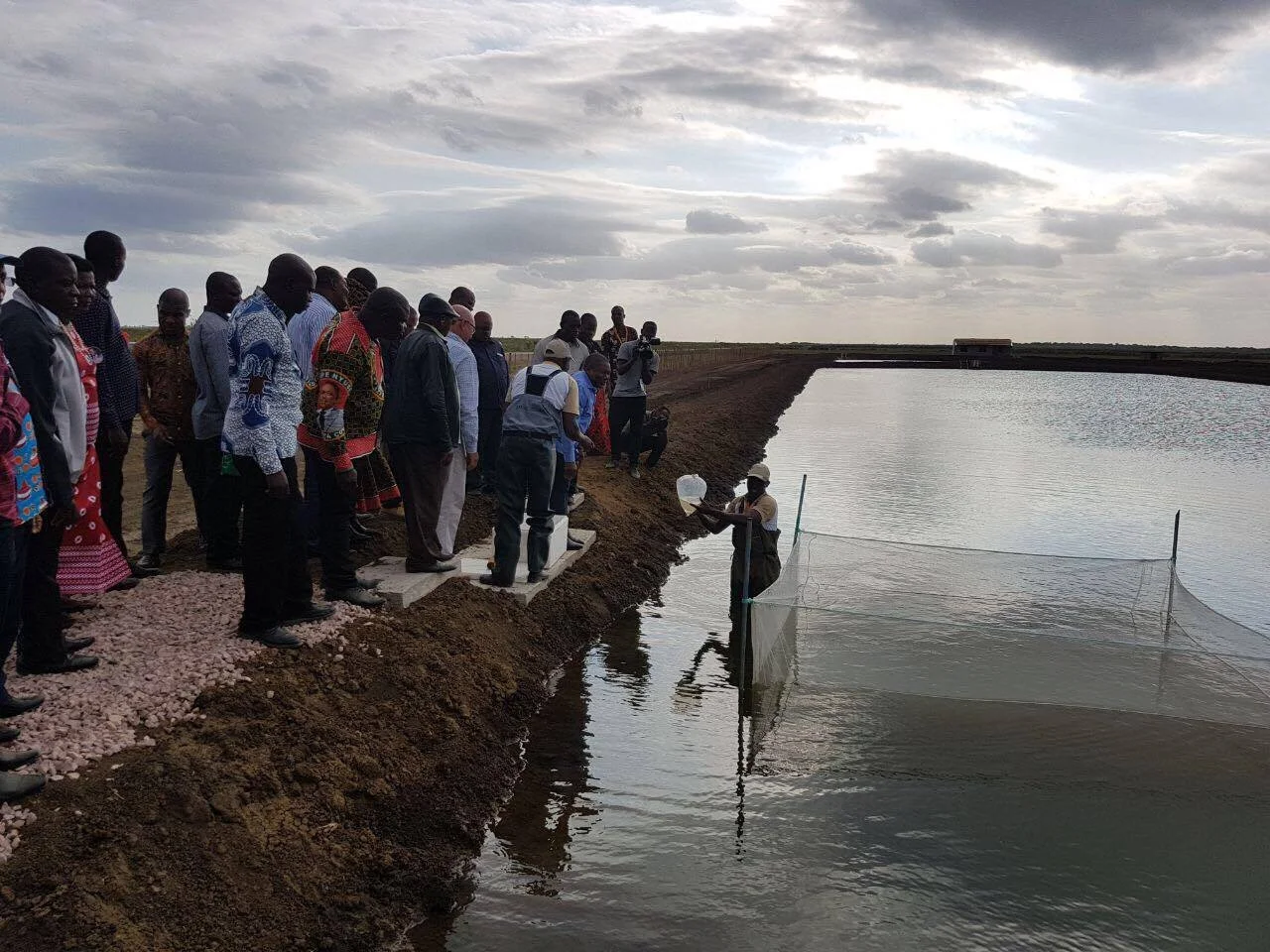Successful fish-farming pilot in Mozambique to continue as a larger project programme
Mozambique's President Nyutsi released the first fish in connection with Norges Vel's pilot project with tilapia
Norges Vel has carried out a pilot project for tilapia farming in Mozambique based on the model from our project on Madagascar, and adapted to local conditions. The pilot project has laid the foundation for a larger programme that is currently in progress to improve food safety and reduce poverty through economic development in the field of aquaculture.
Country
Mosambik
Periode
Pilot: 2016-2019
Project: 2020-2023
Contact
Partners
Papá Pesca
Donor
Det norske utenriksdepartementet
Links
Les mer om hovedprosjektet i Mosambik
Les mer om Madagaskar-prosjektet
We wanted to further develop a sustainable model for tilapia farming in Mozambique based on the good results achieved by working with small-scale fish-farmers on Madagascar. The new model should attract further funding and long-term investments in the value chain for tilapia, both in the area where the pilot project was conducted and in other relevant areas in the country.
A profitable, sustainable model for tilapia farming in Mozambique
Throughout the 36 months of the pilot project, Norges Vel and its partners established and demonstrated a comprehensive model for profitable tilapia farming in the Chokwé region of the province of Gaza in Mozambique. We have worked with a Norwegian who specialises in profitable tilapia farming and has robust experience from Asia, as well as with the local enterprise Papá Pesca and the development organisation TechnoServe.
Papá Pesca has been in charge of the practical implementation of the demonstration area, as well as of instruction and follow up for the target group. The participants are individuals who want to learn about the practical and theoretical aspects of tilapia farming, and who see this as a future source of income. The programme is equally divided among women and men.
The pilot project has comprised the entire integrated chain of production activities from the hatchery to the market:
The climate-adapted, environmentally sustainable design and building of dams equipped with systems for water intake and discharge.
The production of green water (nutrient-rich water that reduces the need for feed), stocking fish in dams, feeding, production follow-up, harvesting, sorting and refrigerating the fish for sale.
Instruction in basic economics, as well as in marketing and sales, is handled by a common unit.
The fish-farmers achieved gross profitability of up to 38 per cent during the production cycle during the hot season of 2018. Tests were also conducted to prepare for the development of the market for tilapia.
A planned association for dealing with common intermediate goods, joint instruction for fish-farmers and joint marketing and sales efforts was postponed until further financing was in place after the pilot project.
Strong local demand and national market studies
Tilapia is a familiar species to most people. Thanks to reasonable prices, the demand for the fish has generally been strong. However, since tilapia is not available everywhere, a local market study was conducted to identify the potential going forward:
Fresh fish was sold by the fish-farming facility immediately after harvesting, mainly to women for resale at local markets.
Test sales in the capital city of Maputo indicate strong demand there as well. Maputo has the potential to become a relevant market for larger production volumes on a more regular basis.
Other markets or market segments, such as frozen fish and exports, were considered. In this context, profitability requires a much larger volume and regular production, as well as some investments.
Huge potential for developing the tilapia farming sector in Mozambique
TechnoServe's study to identify the national potential for industrial development of tilapia farming as a separate sector was presented to the authorities, private players and donors.
The conclusion was that there is a huge potential for developing the fish-farming sector in Mozambique. The study also recommended that such development had to take place through gradual expansion, based on profitability and sustainability. The model tested by Norges Vel and applied in the pilot project was recommended, but featuring more players and improved general conditions. A 15-year plan was put forward for development of the sector, including parameters for financing and the distribution of roles.
The authorities' plans, policies and legislation in relation to aquaculture have been developed during the pilot period and are gradually being improved.
The pilot project will be continued as a four-year project
The pilot project earned a favourable evaluation from KPMG Advisory Norway. The Norwegian embassy in Mozambique and Norges Vel have signed an agreement to continue the pilot project as a general project for four more years, beginning in December 2019, along with their partner Papá Pesca.
During this period, individuals will be trained in entrepreneurship and in profitable and practical tilapia farming. The planned integrator shall also be established as a sustainable association whose goal is to produce approximately 900 metric tonnes of tilapia for sale to relevant markets in the province of Gaza and in Maputo.
The integrator will also strive to ensure that the parameters for the further establishment of independent SMEs engaged in tilapia farming will be viable outside the main project. This association will eventually also work closely with the authorities to satisfy the general requirements for sustainable economic development.
Norges Vel's contribution and role
Project and process management
Organisation, business development and market orientation
Ensure participation and ownership on the part of the fish-farmers and entrepreneurs in the value chain
Ensure gender equality by having 50 per cent women and men in the target group
Ensure climate-adapted and environmentally sustainable tilapia farming
Develop a sustainable tilapia-model that can be applied in new areas
The sustainability goals in the project
In the autumn of 2015, UN member states adopted 17 goals for sustainable development by 2030. All of Norges Vels' projects support the sustainability goals.
This project contributes to:




